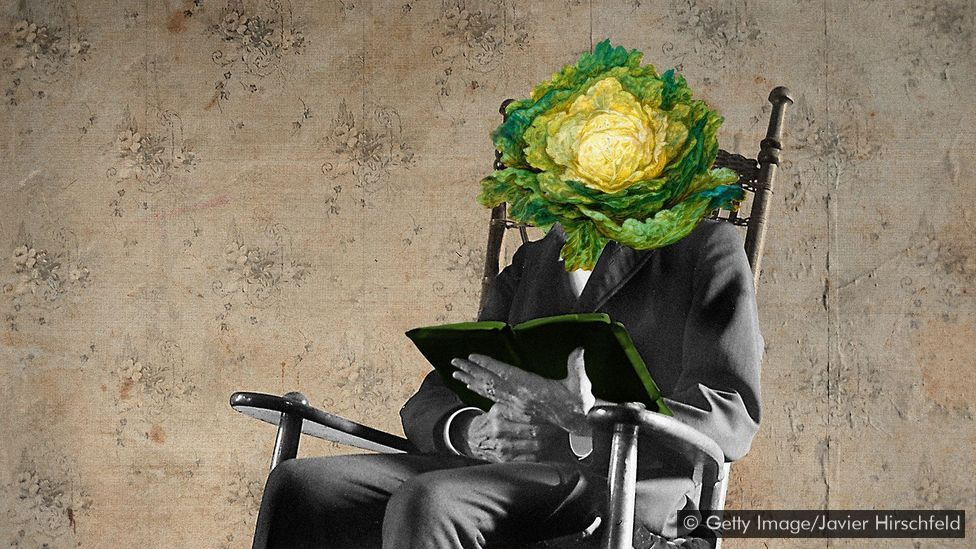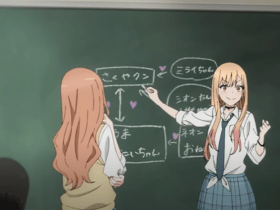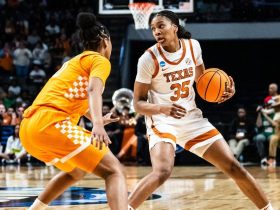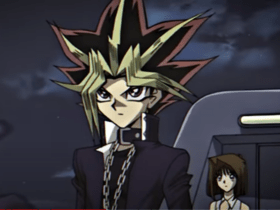Think about a world the place a virus rendered different animals inedible. Then, with folks nonetheless craving the style of meat, human cannibalism turned normalized. That is the dystopian world by which Argentinian creator Agustina Bazterrica’s new novel Tender is the flesh takes place.
The novel has been described as “hideous,” “disturbing,” and “wicked,” stunning readers with its ugly descriptions of the meat manufacturing line. It centers on Marco, employed in a slaughterhouse, “solely nobody calls them that,” as he factors out. He works there, serving to flip people into meals, to pay for his father’s medical therapy. He recollects the mass hysteria through the animal pandemic – the articles confirmed there wasn’t but a remedy. He’s haunted by traumatic recollections of “the teams in yellow protecting fits that scoured the neighborhoods in the evening, killing and burning each animal that crossed their paths.” This can be a world where animals are a rarity – and the place people are exploited like animals as an alternative, from being examined without anesthetic in laboratories to being hunted and killed for sport.
Argentinian creator Agustina Bazterrica stopped consuming meat in 2014 after watching Earthlings, a documentary that reveals the varied methods people exploit different animals.
Argentinian creator Agustina Bazterrica stopped consuming meat in 2014 after watching Earthlings, a documentary that reveals the varied methods people exploit different animals.
It’s a provocative premise. Growing up as a vegetarian in a carnivorous world, I discovered Bazterrica’s dystopian world downright horrifying, however not fairly as stunning as some would possibly. In any case, the best way by which her imagined society blinds itself to struggling human displays the best way ours may be blind to the realities of animal killing. There’s the identical normalization of consuming flesh; the identical euphemisms around what’s being consumed (to the patron, they’re all the time sausages and burgers, not chunks of useless pig and cow); the identical exploiting of one another, regardless of the species concerned.
In one other respect, the novel’s virus-related premise could also be eerily prescient to readers through the present coronavirus pandemic. Covid-19 can’t be contracted from consuming meat, although there was a hypothesis that the virus originated at a ‘moist market’ within the Chinese language metropolis of Wuhan, which offered animals, each useless and alive, making it a zoonotic illness: one which jumps from animals to people. The Centre for Ailments Management and Prevention warns that “three out of each four new or rising infectious illnesses in folks come from animals”, and intensive animal farming has been linked to elevated pandemic threats. One idea concerning the origins of the Spanish flu pandemic has urged it got here from a US pig farm, whereas BSE was brought on by farmers within the UK feeding cattle useless livestock.
A meals revolution
At a time when veganism is booming, transitioning from being a radical way of life alternative to at least one accepted, even embraced by the mainstream, the artwork might have a significant function in altering cultural attitudes to what we select to eat long-term. Bazterrica herself stopped consuming meat in 2014 after watching Earthlings. This 2005 documentary reveals the varied methods people exploit different animals, from the slaughter of livestock for meals to family pets’ euthanasia.
I used to be strolling by a butcher’s store in Buenos Aires once I had a revelation. I assumed: ‘the meat that we eat is cultural’ – we might eat one another – Agustina Bazterrica
“Years later, I used to be strolling by a butcher’s store in Buenos Aires once I had a revelation. I noticed the corpses. I assumed, right here in Argentina, we eat cows and pigs and chickens; however, in India, they don’t eat the cow due to it’s sacred. In China, annually, they have a pageant of the place they kill canine and eat them. So I assumed: ‘the meat that we eat is cultural – we might eat one another.'”
What’s extra, even when we people will not be actually consuming one another, Bazterrica suggests, we’re devouring each other every single day in a capitalist system; these with energy exploit these much less highly effective. All types of exploitation that are interconnected in Tender is the flesh. So long as we see some beings as ‘different,’ we are going to exploit them. And we are going to fudge the problem with excuses and euphemisms – or merely silence.
Veganism is booming in the meantime, with a document variety of folks signing up for this yr’s Veganuary initiative.
Veganism is booming in the meantime, with a document variety of folks signing up for this yr’s Veganuary initiative.
So might Bazterrica’s novel have an actual impact on changing its readers to veganism or vegetarianism? Folks definitely inform her that it has put them off meat for all times. “However, I by no means needed it to be an ethical e-book,” emphasizes the creator. “The books that actually affect me are the books that make me query issues, not those that inform me what to do. I believe artwork and literature take the world and provides it again with one other goal and one other perspective.”
‘The thoughts’ flight simulator.’
This tallies with analysis led by the Canadian cognitive psychologist Keith Oatley, known as fiction ‘the thoughts’ flight simulator.’ The analysis, revealed in 2008, checked out how fiction can affect us, past offering leisure. “I don’t suppose artistic endeavors could make anybody do something,” Oatley tells me, “that’s propaganda. What artwork permits folks to do is consider issues in methods they hadn’t thought of them earlier than.”
Oatley’s analysis discovered that studying fiction usually will increase the reader’s empathy and permits them to grasp others higher. “Studying creative literature permits folks to vary inside themselves, however in their very own approach, not via persuasion. What occurs is you have interaction your self in a narrative, and you’ll suppose to your self, ‘now what would I do on this circumstance?'” What we then take away from what we learn or expertise varies. The same course may be seen in folks watching movies, tv collection, studying journalism, and enjoying video video games.
I assumed it could be a good suggestion to make one thing humorous and watchable so that the vegan message may very well be put throughout in an approach that didn’t traumatize folks – Simon Amstell.
Bazterrica, by no means, got down to write a dystopian novel. “I simply needed to put in writing the most effective novel I might write. After I’m writing, I don’t take into consideration style.” The dystopian facet of Tender is the flesh that took place naturally by telling a narrative. However, it’s maybe the style most able to altering readers’ views on the world. Dystopian novels have energy due to they’re usually so relatable: they amplify what’s already taking place inside society. The dystopian worlds in The Handmaid’s Story and Fahrenheit 451 are so horrifying, for instance, as a result of, for all their horrors. Also, they appear acquainted sufficient that we find yourself drawing comparisons to the world we stay in. “I needed readers to query issues, to begin taking a look at actuality differently,” as Bazterrica places it. Usually, after we are given a chance to see what’s going on in our world in an uncanny new context, we realize what’s ‘regular’ will not be all the time what is sweet.
Bacteria will not be the one artist of late to reconfigure people’s meat consumption as pure horror. In 2017, within the BBC mockumentary Carnage: Swallowing the Previous, the comic and author Simon Amstell made an exceptional case for a way we would someday look again at our carnivorous methods with revulsion.
Amstell, like Bazterrica, went vegan after watching Earthlings – and the documentary was additionally his direct inspiration for making Carnage. “[When people used to ask] ‘why are you vegan?’ I stated, ‘this movie Earthlings, you will need to watch it,’ and they might say, ‘I cannot watch it.’ So I assumed it could be an excellent suggestion to make one thing humorous and watchable in order that the message may very well be put throughout in an approach that didn’t traumatize folks,” he defined in a 2017 interview.
Bong Joon-ho’s 2017 movie Okja tackled the problem of animal exploitation by the story of a younger lady and her ‘super-pig’ companion.
Bong Joon-ho’s 2017 movie Okja tackled the problem of animal exploitation by the story of a younger lady and her ‘super-pig’ companion.
Actually, Carnage succeeds in being as entertaining as it’s highly effective. It’s set in 2067, an imagined utopian future the place the UK is totally vegan. A mix of horrifying actual footage of animal farming and fictional dramatic scenes reveals how humanity will get so far by way of an ethical reckoning.
In a recurring scene, we see a gaggle of pensioners sit in group remedy and cry and luxury each other. One humiliatingly recollects their former habit to cheese. “It’s nonetheless tough to say it out loud,” says one other, “I ate animals.”
The flipping of norms
At current, whereas consuming meat and animal merchandise is the dominant cultural norm, those that don’t accomplish that are labeled vegans. Nonetheless, Amstell imagines a scenario the place it’s meat-eaters who’re those with the particular label given to them. “We aren’t vegans,” says activist character Troye King Jones, “they’re carnists.” It’s a concise and provocative approach for Amstell to flip any meat-eating viewers’ long-standing cultural assumptions.
Additionally launched in 2017, Okja is one other movie that has achieved its bit within the combat towards animal exploitation. Directed by this yr’s Oscar-winner, Parasite’s Bong Joon-ho, it tells the story of a somewhat lady known as Mija residing within the South Korean mountains along with her good friend and large animal companion, Okja – a particular breed of agriculturally-efficient ‘tremendous pig’ created by a shadowy multinational. Nonetheless, each of their lives change when stated firm arrives to take Okja away. Mija learns Okja is destined for the slaughterhouse, and so she and a gaggle of radical animal rights activists set out on a rescue mission.
Going vegan wasn’t nearly a political or philosophical assertion. It was simply an instinctual, bodily response to the odor and simply the expertise I had there – Bong Joon-ho.
In Okja, we genuinely care concerning the ‘tremendous pig,’ who cleverly will not be fairly like several animals in actual life. She will not be a canine or cat, nor strictly a pig. Reasonably, Bong has made positive she is free from the cultural associations we have now with entirely different species. What meaning is that we’re in a position to empathize along with her without cultural bias.
At the time of its launch, Bong defined how he visited a slaughterhouse whereas writing Okja, and subsequently went vegan for two months. “It wasn’t essentially a political or philosophical assertion it was simply an instinctual, bodily response to the odor and simply the expertise I had there.” He has emphasized that turning his viewers vegan wasn’t his purpose, although he did wish to criticize how people exploit animals within the capitalistic system of mass manufacturing – and Jon Ronson, the movie’s co-writer, has recounted what number of having instructed him watching the movie made them change their consuming habits.
Nobel-prize profitable Polish creator Olga Tokarczuk supplied up a strongly anti-carnivorous message in her 2009 novel Drive Your Plow Over the Bones of the Lifeless.
Nobel-prize profitable Polish creator Olga Tokarczuk supplied up a strongly anti-carnivorous message in her 2009 novel Drive Your Plow Over the Bones of the Lifeless.
Each Okja and Carnage use humor and interesting narratives to attract folks into redefining their relationships with animals. Whereas they’re each provocative, they don’t preach. In each circumstance, everyone seems to be made enjoyable a bit in Okja, which features each Swinton’s insatiably grasping CEO and The Animal Liberation Entrance (ALF), who’s portrayed like eco-terrorists (albeit well-intentioned ones). In Carnage, there’s the ‘Bland’ household, who conform to the stereotypical picture of bean-eating, life-hating vegans – however, there’s also TV chef Fanny Cradock, whose sumptuous meat dishes and explosive character are weirder than fiction. First, these movies chuckle with us, after which they shake up our preconceived concepts and tackle our biases.
Each launched in 2017, Carnage and Okja anticipated the vegan increase of the previous three years. A report from 2018 confirmed {that a} third of Britons had diminished their meat consumption or stopped consuming meat altogether, whether or not for the setting, their well-being, and/or to save lots of animals. Extra not too long ago, this yr an unprecedented 400,000 folks signed up for Veganuary, a marketing campaign the place pledgers give veganism an attempt for the month of January.
Details v fiction
After all, the extent to which fiction is enjoying, or will play, an element on this shift will not be clearly measurable. Documentaries and non-fiction can have an extra instantly tangible effect, maybe. A couple of years in the past, I bear in mind seeing indicators outdoors quite a lot of London espresso outlets by which the proprietors stated they may not justify providing cow’s milk (and would now offer a plant-based different) after having watched Cowspiracy, a 2014 movie from Oscar-winning star Joaquin Phoenix, which explored the environmental effect of animal agriculture. Phoenix’s 2017 follow-up What the Well being additionally triggered a stir, critiquing the well-being impacts of the meat and dairy industries. One other newer movie which has made a big impression by way of Netflix is The Sport Changers, a polemic advocating for plant-based diets, which partly makes its case by difficult the notion that consuming meat is important for power and athleticism.
However, fiction can have its effect, altering hearts and minds in an approach that could be much less direct; however, it may be only as highly effective. Curiously, the documentary Earthlings also drew from poetry, artwork, and literature that controversially compares animals’ therapy with the struggling of victims of racism and sexism.
What kind of a world is that this, the place killing and ache are the norm? What on earth is fallacious with us? – Drive Your Plow Over the Bones of the Lifeless, Olga Tokarczuk
Close to the start of Earthlings, the narrator quotes instantly from Enemies, a novel by the late Nobel Prize profitable creator and outstanding vegetarian and animal rights advocate, Isaac Bashevis Singer, who grew up in Poland and fled the horrors of the Holocaust. Within the chosen passage, the e-book’s protagonist Herman Broder, additionally a Holocaust survivor, displays on man’s therapy of different species: “as usually as Herman had witnessed the slaughter of animals and fish, he all the time had the identical thought: of their behavior in the direction of creatures, all males had been Nazis. The smugness with which man might do with different species as he happy exemplified essentially the most excessive racist theories, the precept which may is true.” Singer’s work continues to encourage folks to cease consuming meat. Actor Natalie Portman remembered him in a 2018 video for Peta, by which she stated he ‘articulated the plight of animals so boldly that the fashionable world couldn’t ignore him.’
There have been different vocal non-meat consuming novelists – and certainly different Nobel Prize profitable ones. The 2003 winner J M Coetzee has written The Lives of Animals, a metafictional novella about animal rights, in addition to quite a few articles on vegetarianism. In the meantime, vegetarian and feminist Polish creator Olga Tokarczuk, who gained the Prize in 2018, supplied up a strongly anti-carnivorous message in her 2009 novel Drive Your Plow Over the Bones of the Lifeless, which, in a single memorable passage, featured its aged protagonist Janina cursing the normalization of exploiting animals: “What kind of a world is that this? Somebody’s physique is made into sneakers, into meatballs, sausages, a bedside rug, somebody’s bones are boiled to make broth Sneakers, sofas, a shoulder bag created from somebody’s stomach, conserving heat with another person’s fur, consuming somebody’s physique, slicing it into bits and frying it in oil. Can it be true? Is that this nightmare taking place?”
In Tender is the Flesh, Bazterrica imagines a terrifying endpoint to our meat obsession. One of the many issues she is happiest about, she tells me, is that her e-book is learning in Argentinian colleges, even outdoors the capital. “I believe youngsters must begin questioning the matrix,” she says. Even in steak-loving Argentina, veganism has grown in recent times – there at the moment are greater than 4 million vegetarians and vegans in response to a 2019 examination, out of inhabitants of 44.5 million.
The novel has offered in eight languages, and the critics have been typically very optimistic at the same time as they’ve been shaken by it. It will likely be fascinating to see how the e-book will affect a brand new generation of readers and customers. Tender is the flesh that is more likely to affect readers partly due to it’s an excellent instance of fiction as “the thoughts’ flight simulator.” By studying this novel, we see the total horror of a world where killing and ache are the norms. We’re in a position to expertise residing in this speculative future of our making, the place we’ve indulged our wishes; however, we are alone because of this. We’ve killed off our animal companions – and we’re devouring one another. Marco sits within the ruins of the Buenos Aires Zoo, the closest he can get to nature. There are not any animals. Solely recollections. Typically we only realize how necessary one thing is when it’s too late.















Leave a Reply